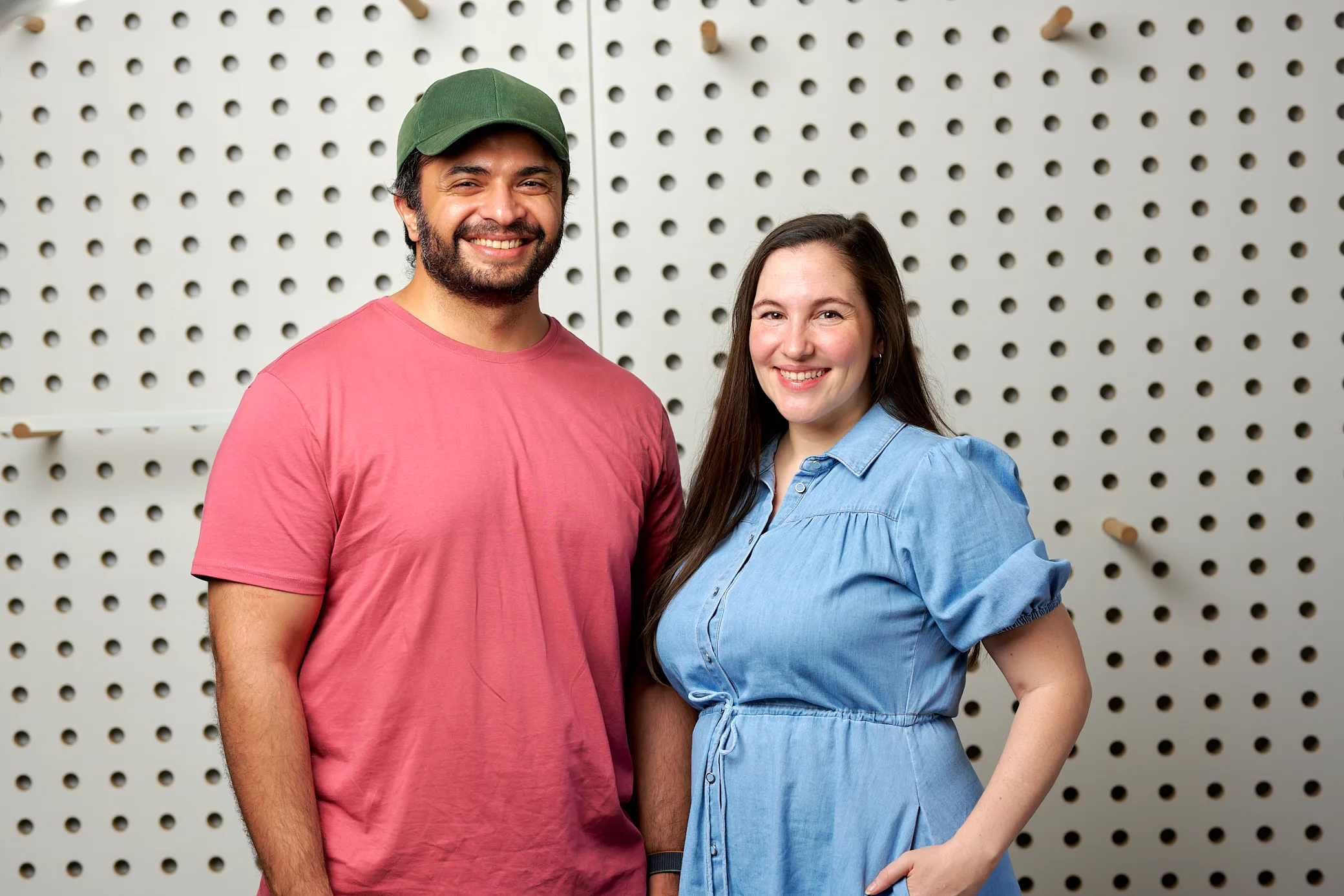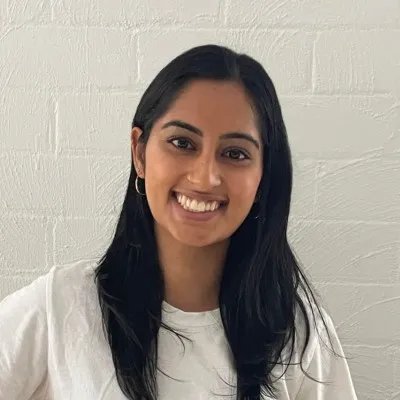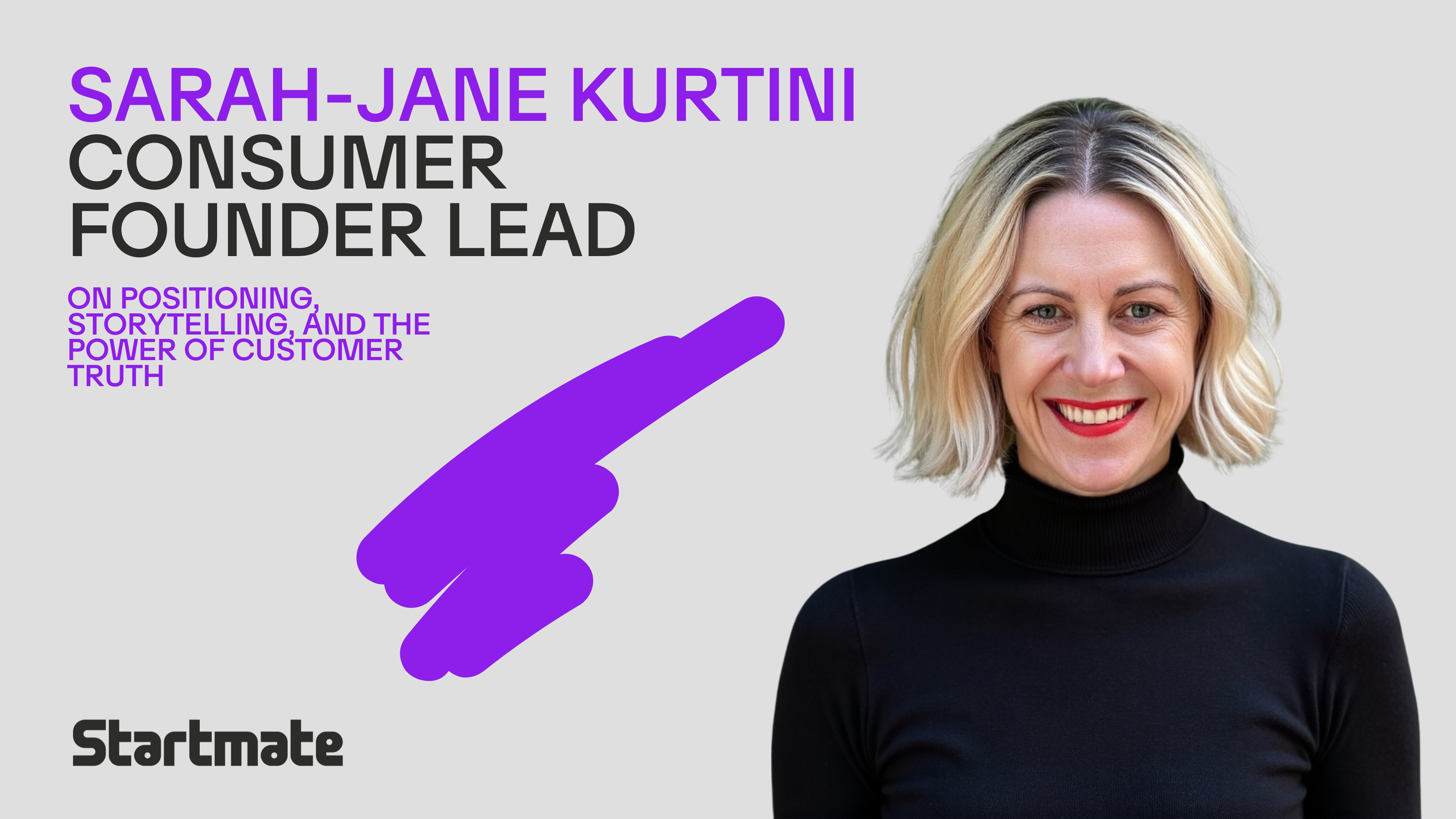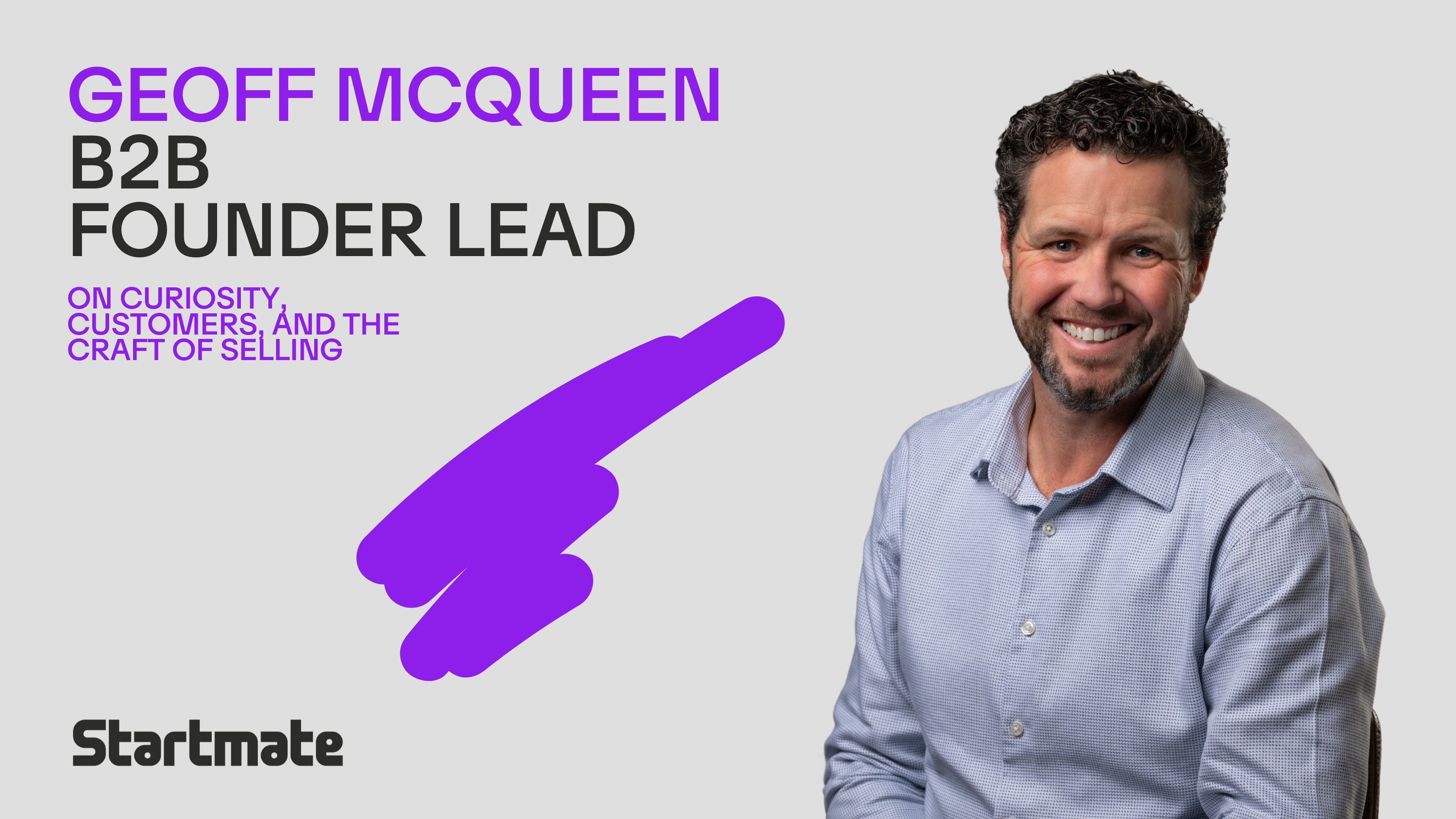When Angela Mariani and Mani Batra went on their first date in 2020, their shared passion for startups had them seeing sparks everywhere. Little did they know that they’d soon be saying “I do” not just to each other, but also to taking on the healthcare sector together.
Angela and Mani are the co-founders of Everbility, a documentation AI co-pilot for allied health professionals, to assist them with their administrative load, and ultimately help them “provide better health services and outcomes for their patients.”
Within a year of existing, this startup, based in Hunter Valley NSW, has made footprints in almost every continent of the world.
From dating to co-founders
The now-married couple met online in 2020, in between lockdowns, and initially bonded over having both worked for startups in the past.
“When we met, Mani didn’t know that I also had a technical background. So he was explaining his job like I was a completely non-technical person.” But when Mani realised he’d met someone who spoke the same language as him, and who he “could just be a nerd” around, he was ecstatic.
What Mani didn’t know at the time was that his unique compatibility with Angela would bring Everbility to life. Mani’s worn many hats over the 13 years of his career, building startups, mentoring in AI/entrepreneurship, and shaping products as a software engineer. Angela, while currently an occupational therapist, attained qualifications in graphic design and computer science before becoming an allied health professional.
Mani’s passion for software and building products combined with Angela’s creative background and lived experience in the healthcare sector were one thing, but the duo also shared dreams of building something from the ground up together.
Everbility 2.0
For Angela however, building a startup meant a great deal more. Growing up caring for a sister with a disability, and having worked in the health sector for over a decade, Angela has seen first-hand the pitfalls that exist, and has been dreaming, for a long time, of ways to make the world more accessible for people with disabilities.
In 2015, Angela was building “an app to help people with intellectual disabilities catch public transport independently.” She named it Everbility Travel - travel for every ability.
“The name Everbility came because I wanted to build a bunch of applications to help people with disabilities do all kinds of things. Everbility Travel was one component of what I was building, and now it’s been revived in a completely new light…It’s like Everbility 2.0,” says Angela.
Everbility 2.0 has evolved significantly from its origins. It started as an NDIS chatbot to help people navigate the rules and regulations of the NDIS.
“The first version of Everbility was launched on a Sunday night after a hack session, and it was just one page.”
“An NDIS search tool made sense because it was something tangible that we could put in the hands of customers and start having conversations around,” Angela tells me.
Writing reports till 2 am
Out of those conversations, Angela and Mani were able to hone in on the problem space they were tackling and realised quickly that many allied health professionals desperately needed a faster way to write reports.
As part of their role, allied health professionals are required to keep detailed documentation of things like client notes, appointment notes, letters, and more, which is extremely time-consuming.
“I’d seen Angela go through the journey of being an occupational therapist, writing reports till two in the morning, in tears, literally,” Mani tells me.
Angela wasn’t alone: 89% of allied health professionals surveyed indicated they were emotionally exhausted, and 58% often felt burnout due to their work, according to 2022 research conducted by Swinburne University, RMIT University, and the Victorian Allied Health Professionals Association (VAHPA).
This isn’t just an issue in Australia. Globally, an already overworked industry has come under further stress post-pandemic. Post-pandemic the NHS has seen worsening worker attrition, with healthcare professionals including allied healthcare professionals stating workload intensity as a primary factor behind their decision to leave.
While Angela was fighting a losing battle with never-ending documentation work as an occupational therapist, Mani was noticing the rapid advancements in AI technology.
He was inspired by what AI technology could mean for overworked allied health professionals.
“Suddenly this leap in generative AI capabilities happened and it was clear that this is something that we can use now to solve this very real problem,” he says.
“We’ve spoken to over 250 people now”
Once Angela and Mani knew they wanted to build a product using AI to support allied health professionals, they became obsessed with learning everything they could about their customers’ pain points.
Angela had personal experience with this problem, but insights from customers showed her and Mani how big this issue really was.
“We’ve talked to over 250 customers now. A lot of the product development has been driven by talking to customers repeatedly, taking on the feedback, then going back to them,” Mani says.
“We have answered questions at three in the morning, and we’ll continue to do so. I wouldn’t be exaggerating to say, in this space we provide the best customer service there is.”
“Some allied health professionals are using Everbility to write reports that are 80 pages long in 80% less time.”
When I asked the couple how they would describe Everbility’s core values, they made it clear that “speed is everything to [them].”
“We’re not afraid of experimenting and moving fast to put a product in the hands of consumers because we believe consumers are the best judge of if we have built something useful,” Mani says.
Everbility has bootstrapped its growth up until now, with Startmate as its first investor coming on board.
Looking ahead, Everbility is now graduating from individuals and small businesses and targeting larger organisations, with 500+ employees.
The business is now also expanding beyond occupational therapists, and offering its product to other allied health professionals.
The healthcare sector is beginning to embrace AI
Angela and Mani say targeting customers has become easier as AI has become more prevalent in society.
“When we first started, people were scared of the technology and there was a lot of fear-mongering around AI. All our conversations were focused around privacy…and educating people on how the product worked, and how AI was involved,” Angela says.
“Maybe around December, the conversation just completely switched…AI is everywhere now, everyone is realising that it’s important,” Angela adds.
Invested in the importance of technology in healthcare, Angela and Mani are willing to do the hard yards to ensure their customers are comfortable with AI.
“Documentation is a very small part of what we’re doing. The vision for Everbility is to completely take away the admin burden for health professionals and provide them with tools that lead to better health outcomes for their clients.”
Apply for our next Accelerator cohort here.






.png)

